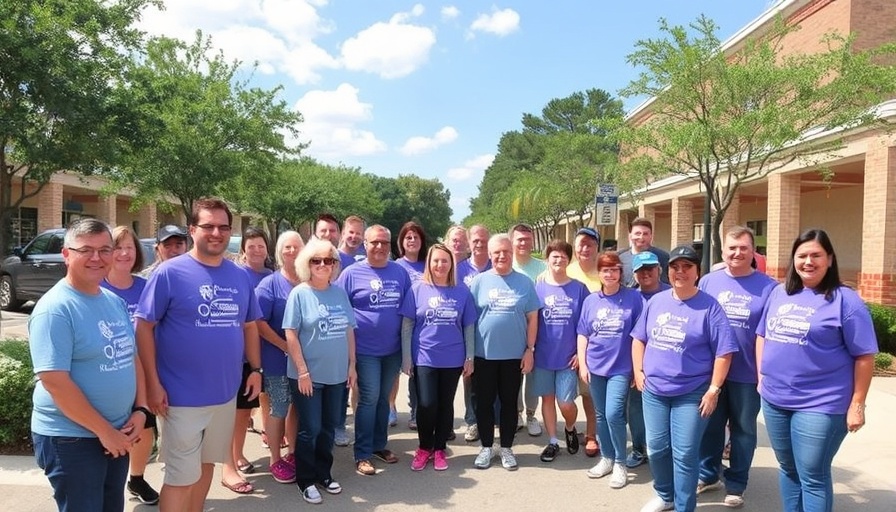
Gainesville Unites for Alzheimer’s Awareness
On October 11, 2025, Gainesville witnessed a powerful gathering as over 100 residents donned purple and participated in the Walk to End Alzheimer’s, raising both awareness and funds for research into this devastating disease. This annual tradition emphasizes community solidarity, focuses on personal narratives, and initiates crucial conversations regarding Alzheimer’s disease.
Personal Stories that Motivate Change
The emotional weight of the event was palpable as participants shared personal stories. Christina Ebey, chair of the event, passionately spoke about her mother’s struggle with Alzheimer’s and the ripple effects that the disease has on families. “It’s heart-wrenching to see my mom unable to recognize her sister,” she shared. Her heartfelt testimony resonated with many, reminding attendees that Alzheimer’s is not merely a statistic; it affects real lives.
Understanding Alzheimer’s Disease: A Community Responsibility
Many believe Alzheimer’s is solely an elderly person’s disease, but the truth is more complex. Christina highlighted that symptoms can begin as early as the 40s. This underscores the need for immediate action in education and funding to tackle Alzheimer’s. By participating in events like the walk, community members are investing in their own futures and those of their loved ones, creating awareness around Alzheimer’s, and supporting the search for treatment.
Raising Funds and Awareness for a Brighter Future
This year’s event was particularly significant, with funds raised reaching over $107,347 against a goal of $145,000. Each contribution matters, no matter how small, and signifies a commitment to fighting Alzheimer’s. Supporters and walkers were encouraged to recognize the colorful flowers representing their reasons for participation – blue for those diagnosed, purple for the deceased, and yellow for caregivers, fostering a shared understanding of the impact of the disease.
Encouragement and Support for Families
Events like this serve as an essential platform for sharing advice and resources for caregivers. As noted by Christina, finding appropriate assisted living services and ensuring that those affected receive proper care is vital. Programs and community resources are available to help families navigate the complexities of Alzheimer’s care, including counseling and support groups aimed at providing emotional support for caregivers.
Action Steps for Community Members
For those who weren't able to attend the walk but wish to contribute, donations continue to be accepted, and participating in local Alzheimer’s awareness initiatives can foster greater community understanding. Furthermore, educating oneself about Alzheimer’s symptoms, early intervention strategies, and available local resources can make a significant difference.
Looking Ahead: Hope for the Future
As Gainesville steps up to combat Alzheimer’s, the hope is that this community effort, coupled with increased funding and research, will lead to breakthroughs in treatment. It's not just about walking; it’s about community action designed to prevent further suffering caused by this disease. The commitment to eradicating Alzheimer’s disease in Gainesville can serve as a model for towns across the country.
For those interested in joining the movement or finding support services, it’s not too late to get involved. Visit local Alzheimer’s organizations or online platforms to participate in fundraising efforts and support community awareness. Together, we can make a meaningful impact on the lives affected by Alzheimer’s disease and help find a cure.
 Add Row
Add Row  Add
Add 




Write A Comment